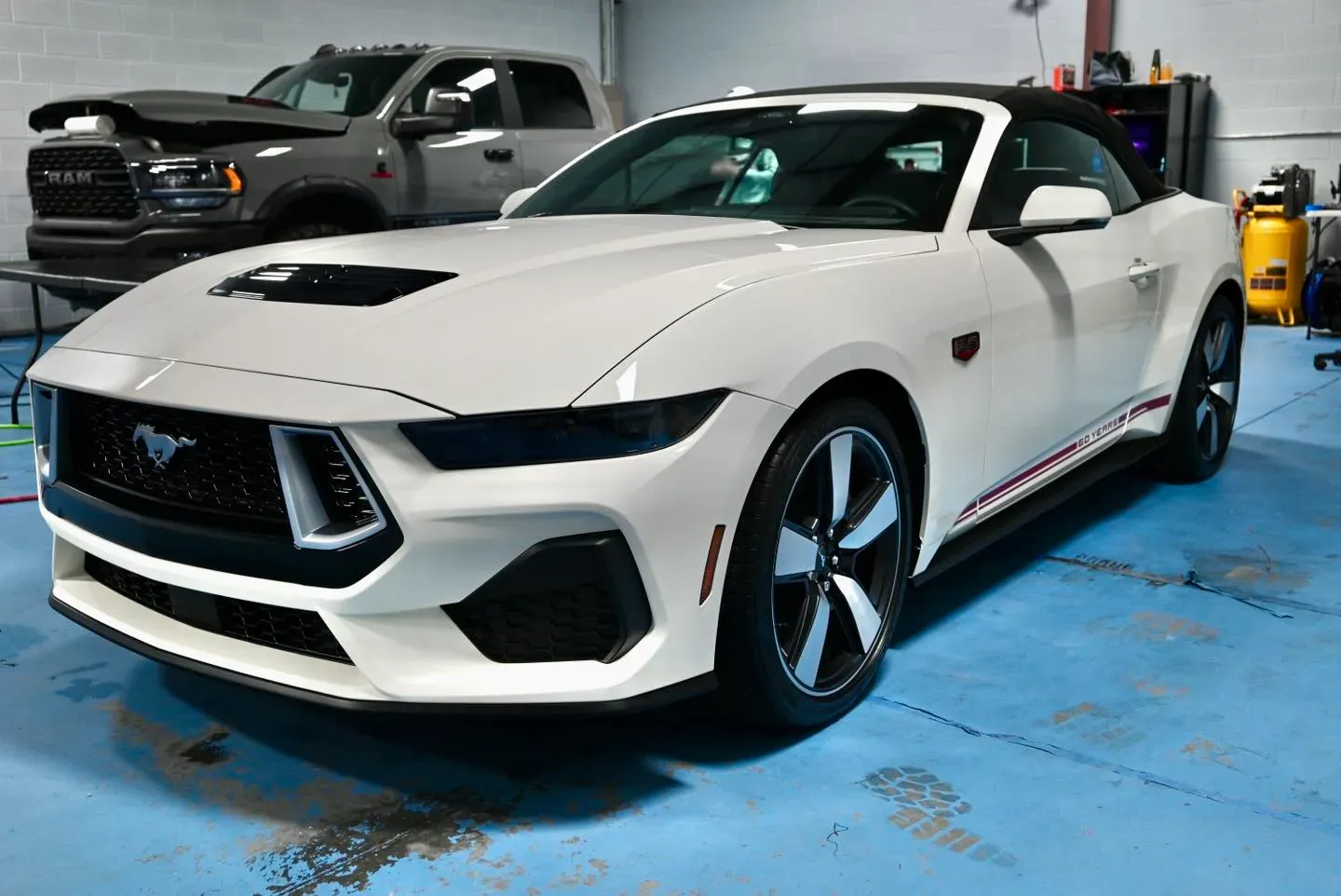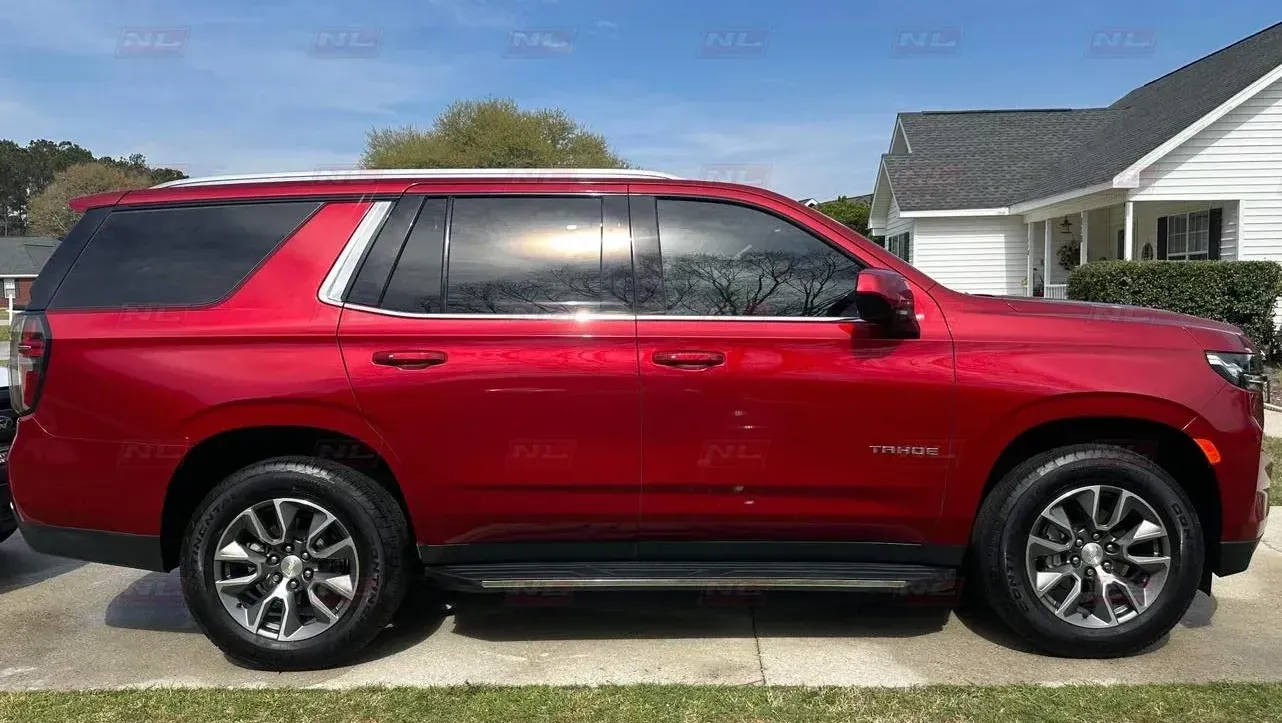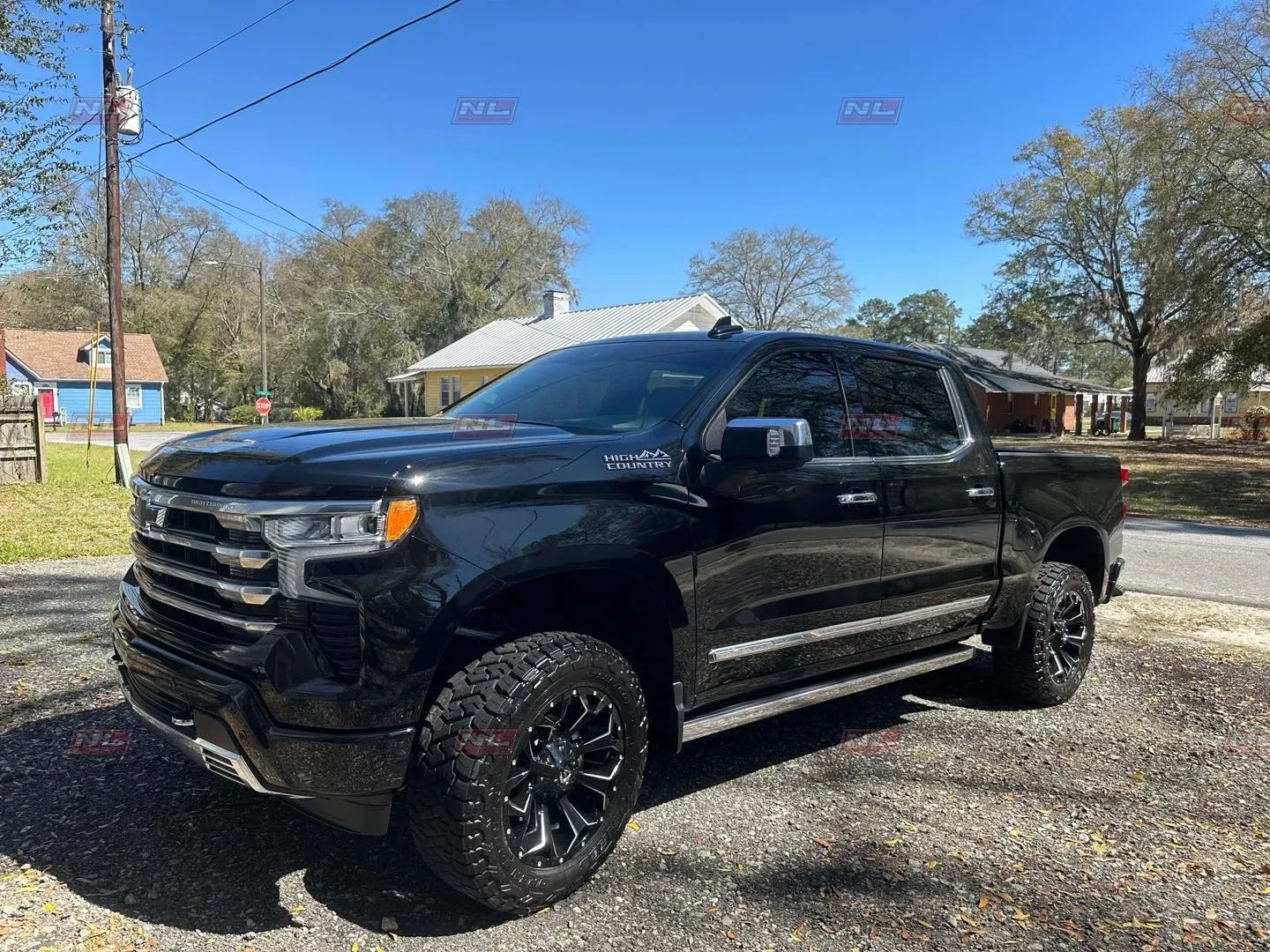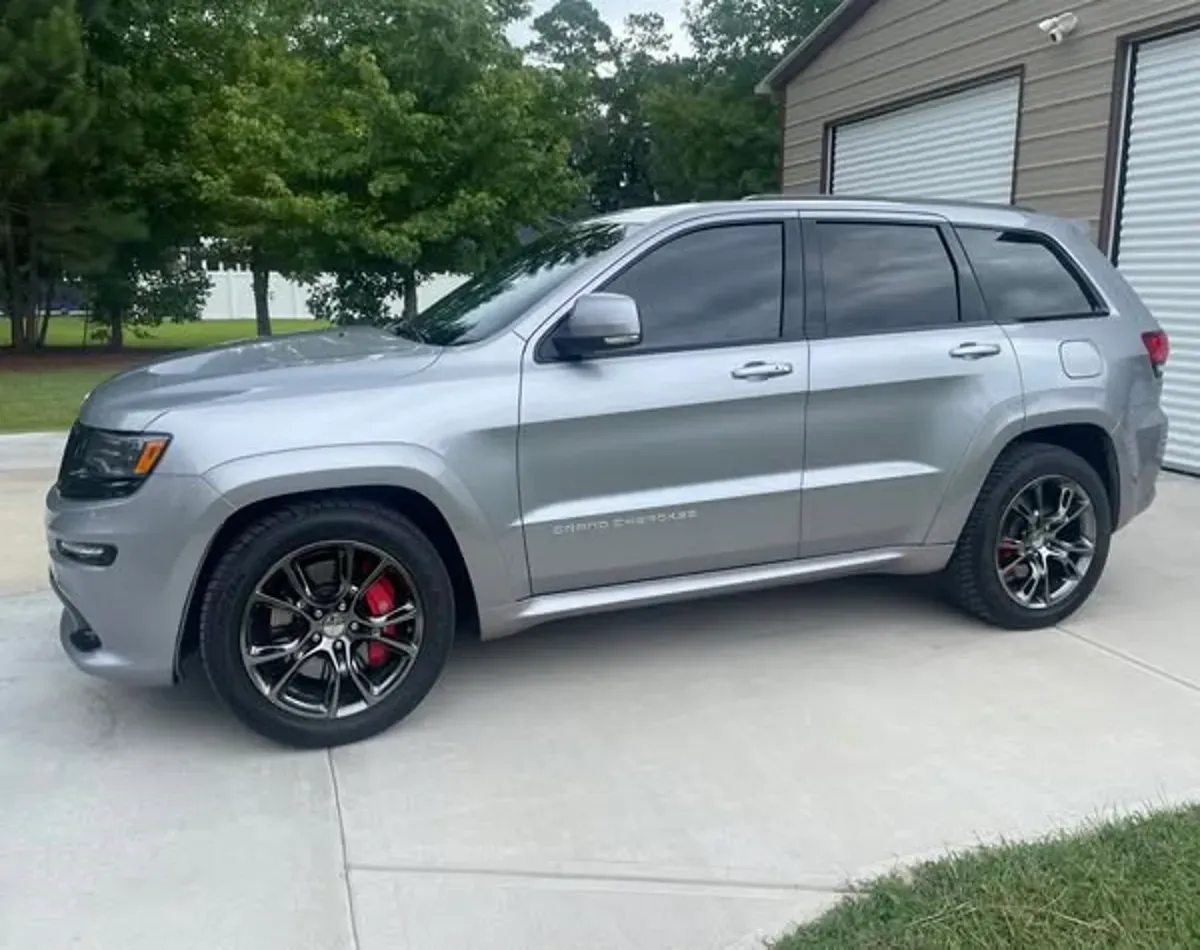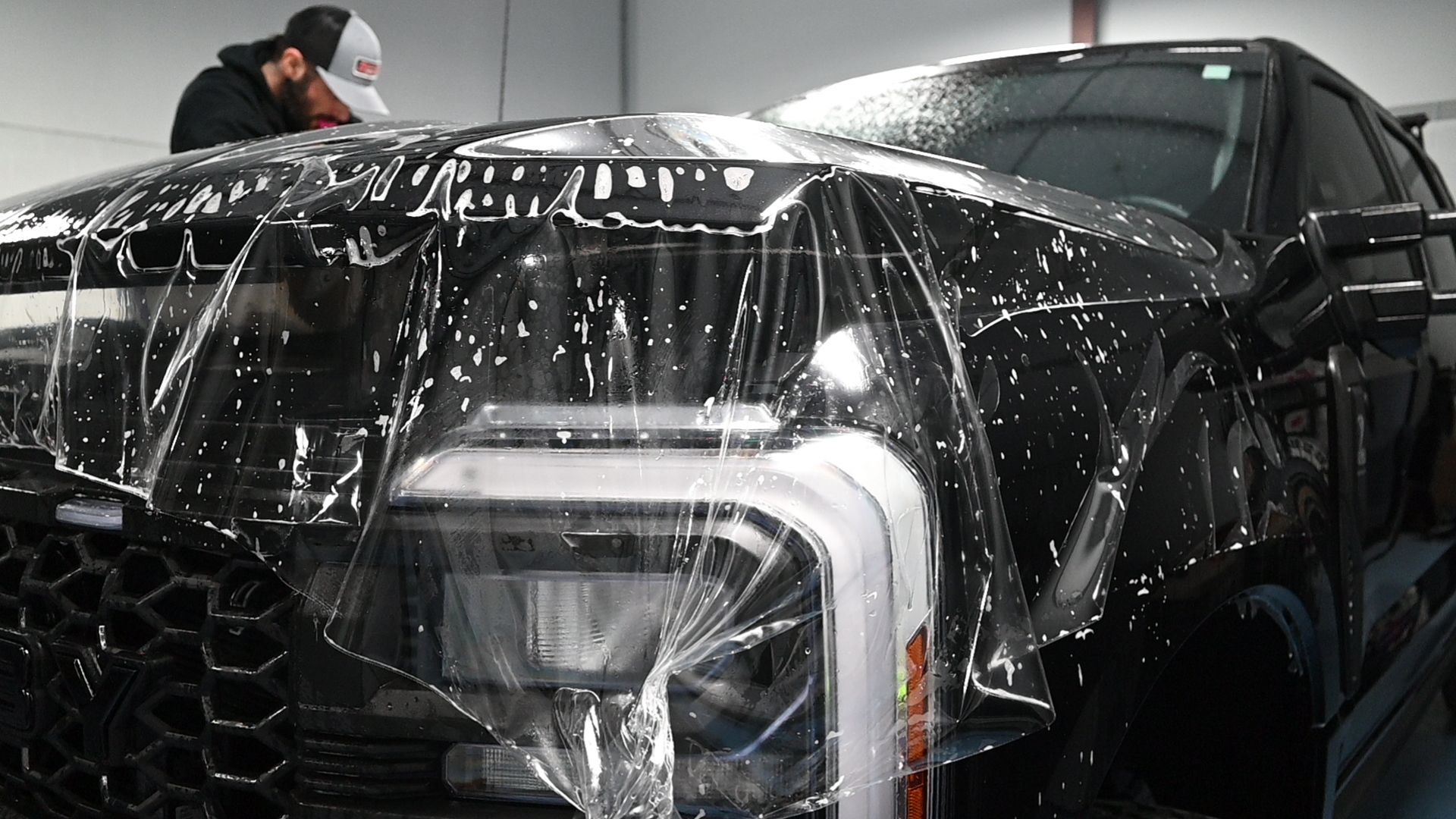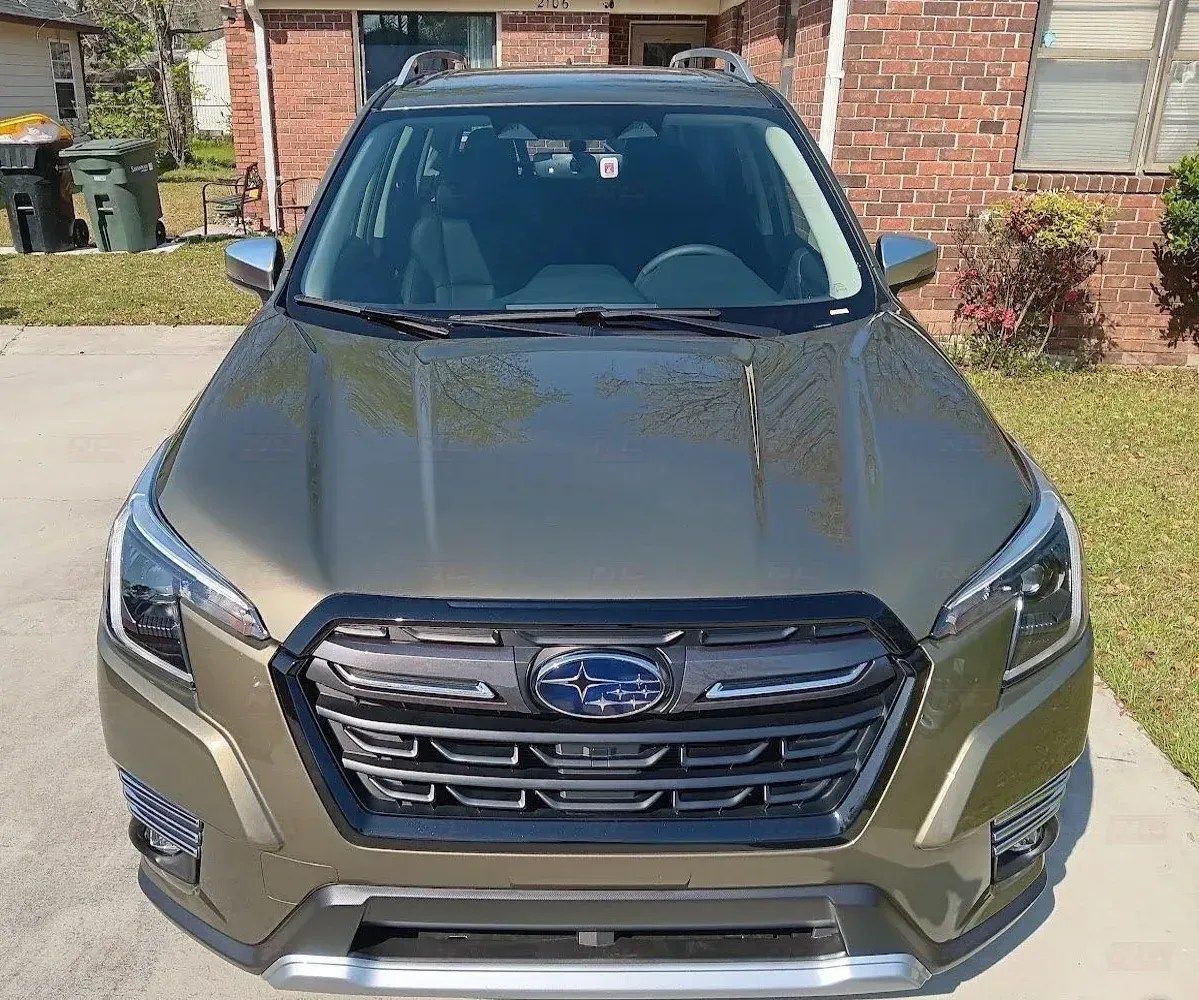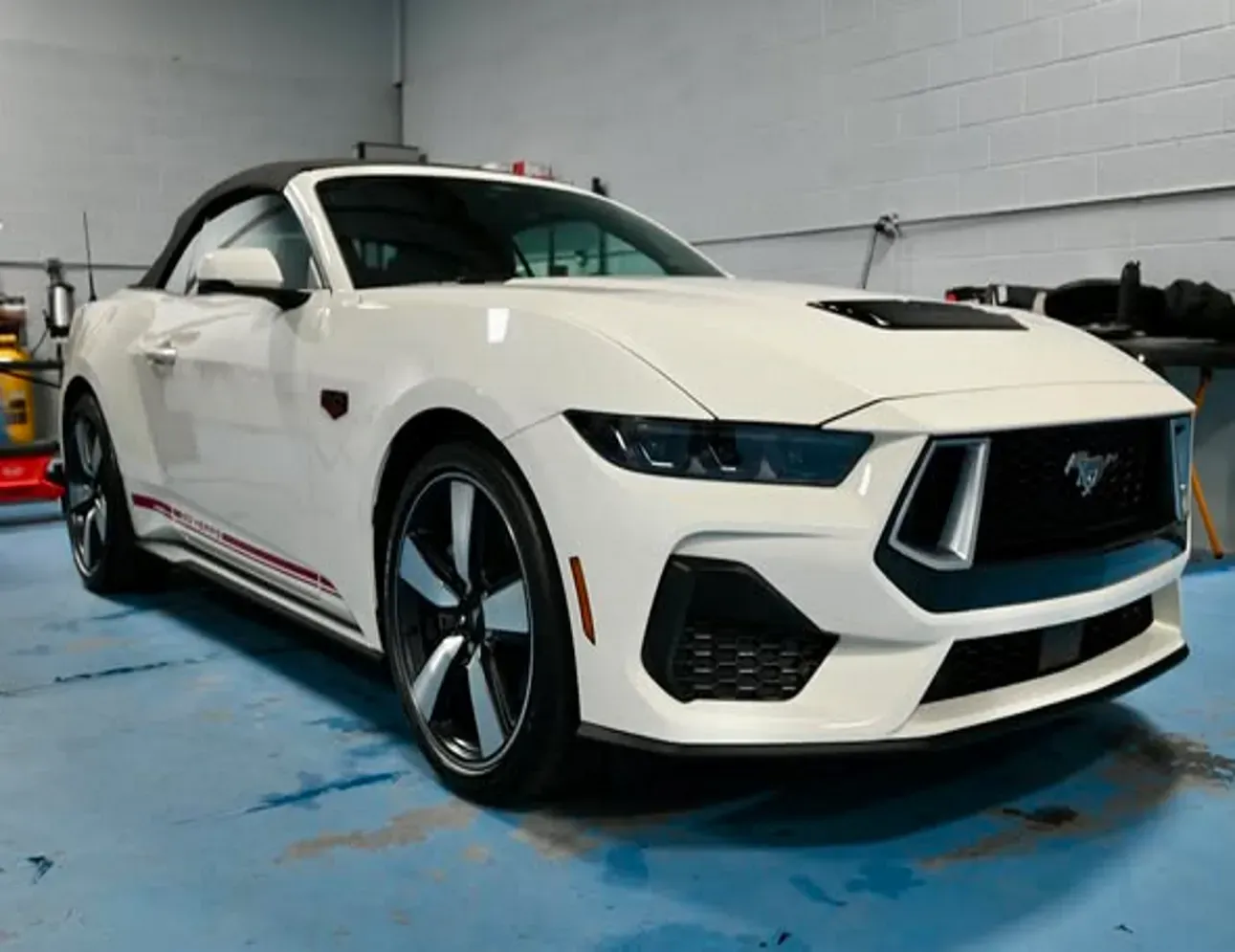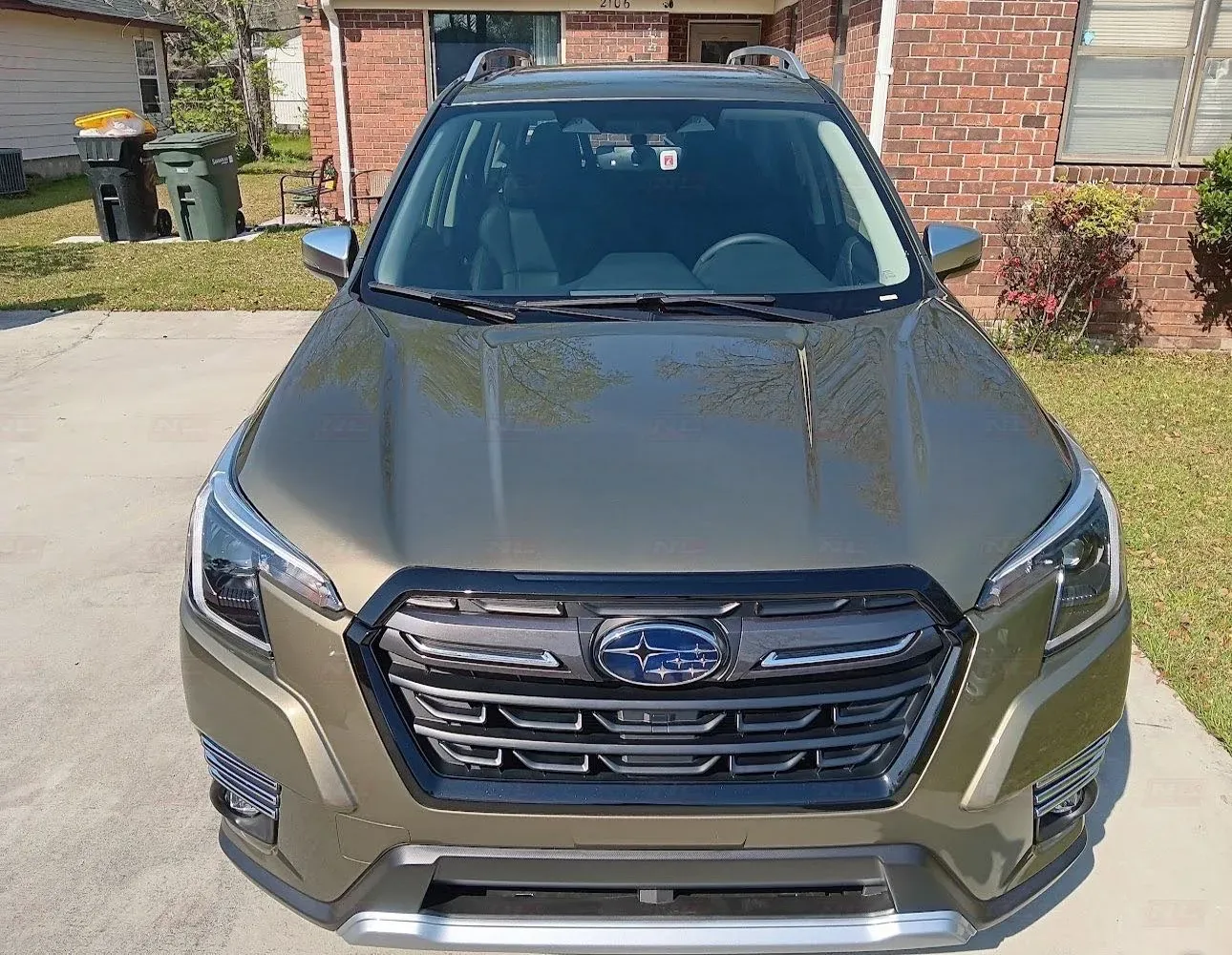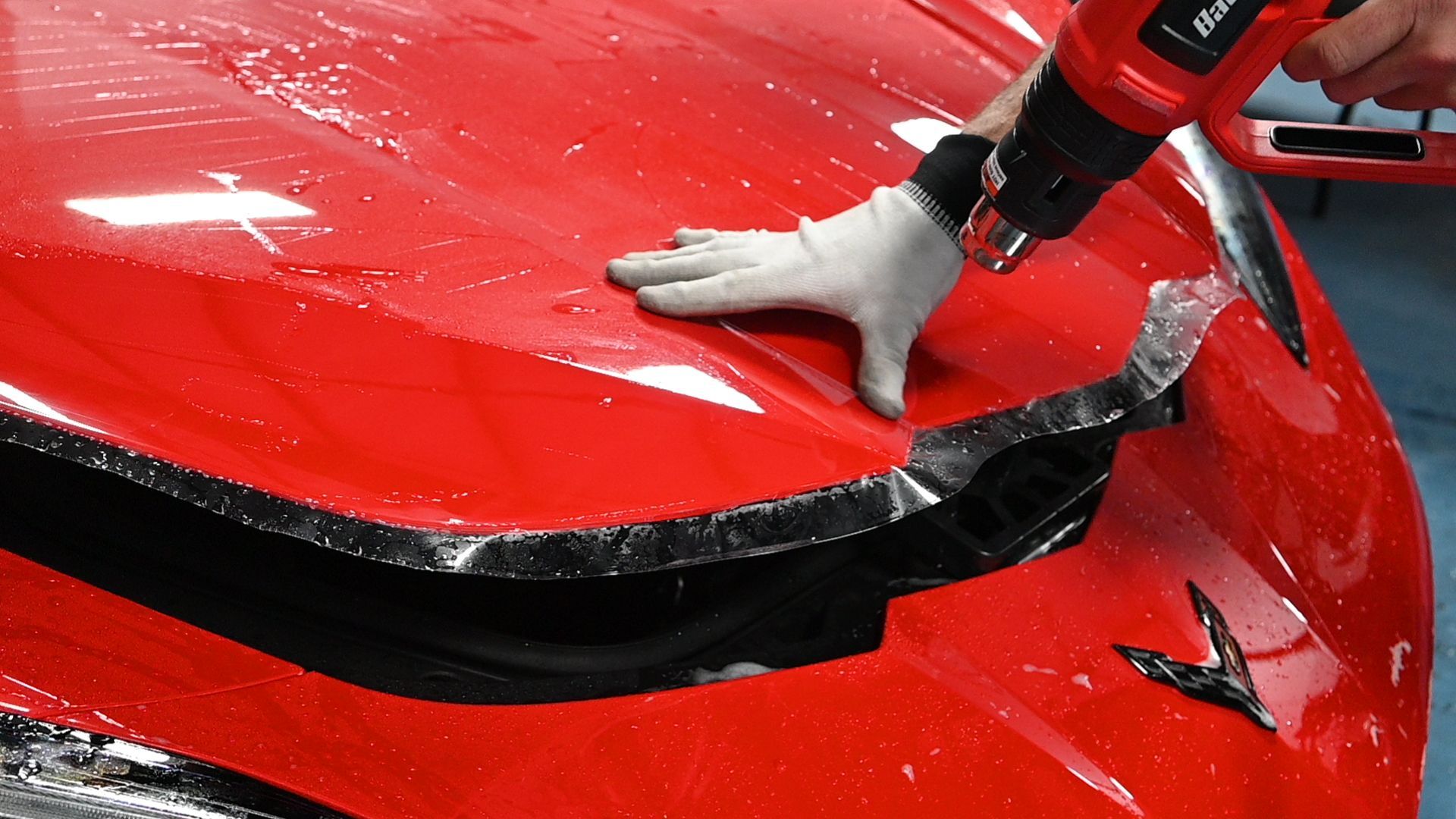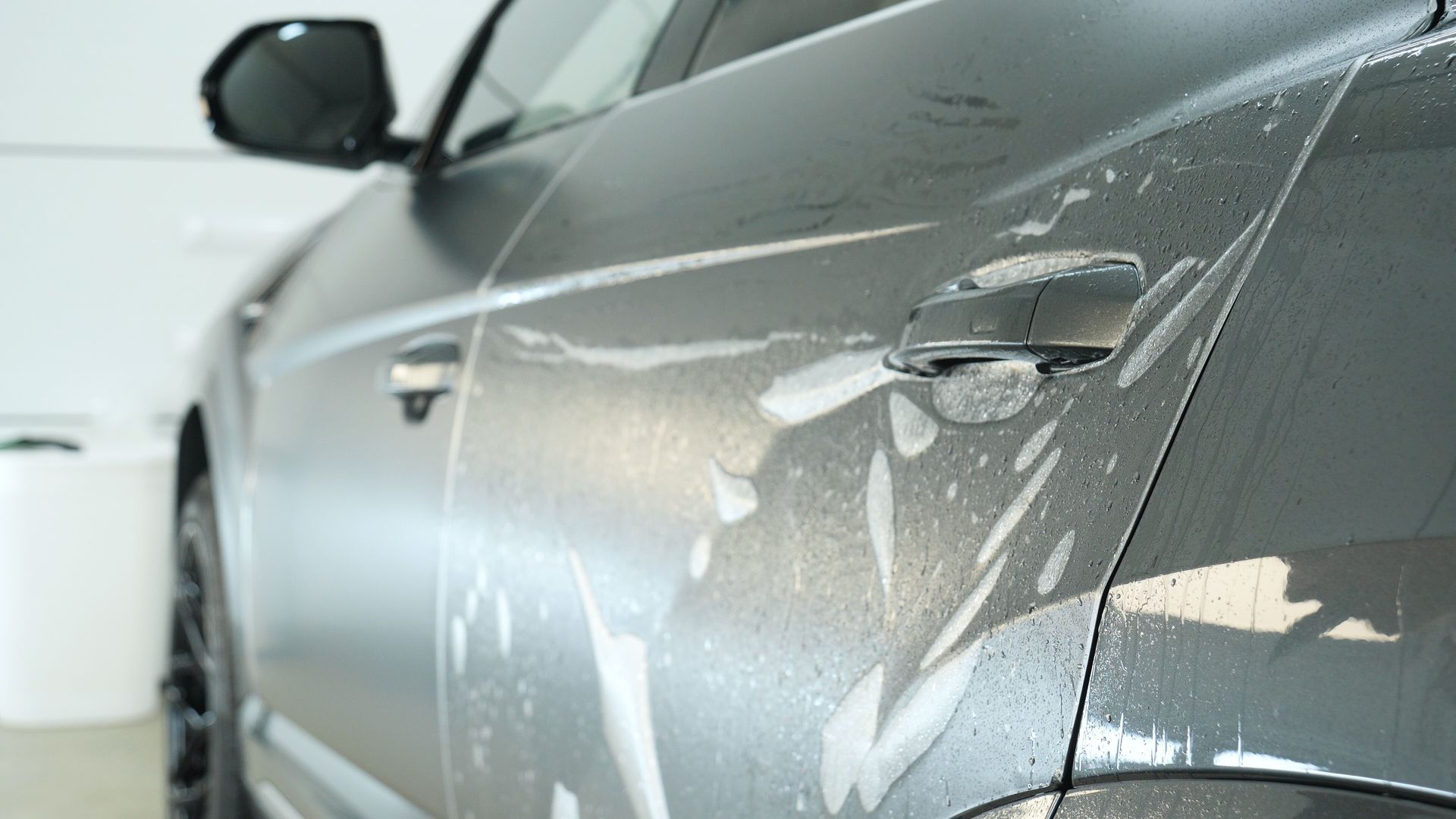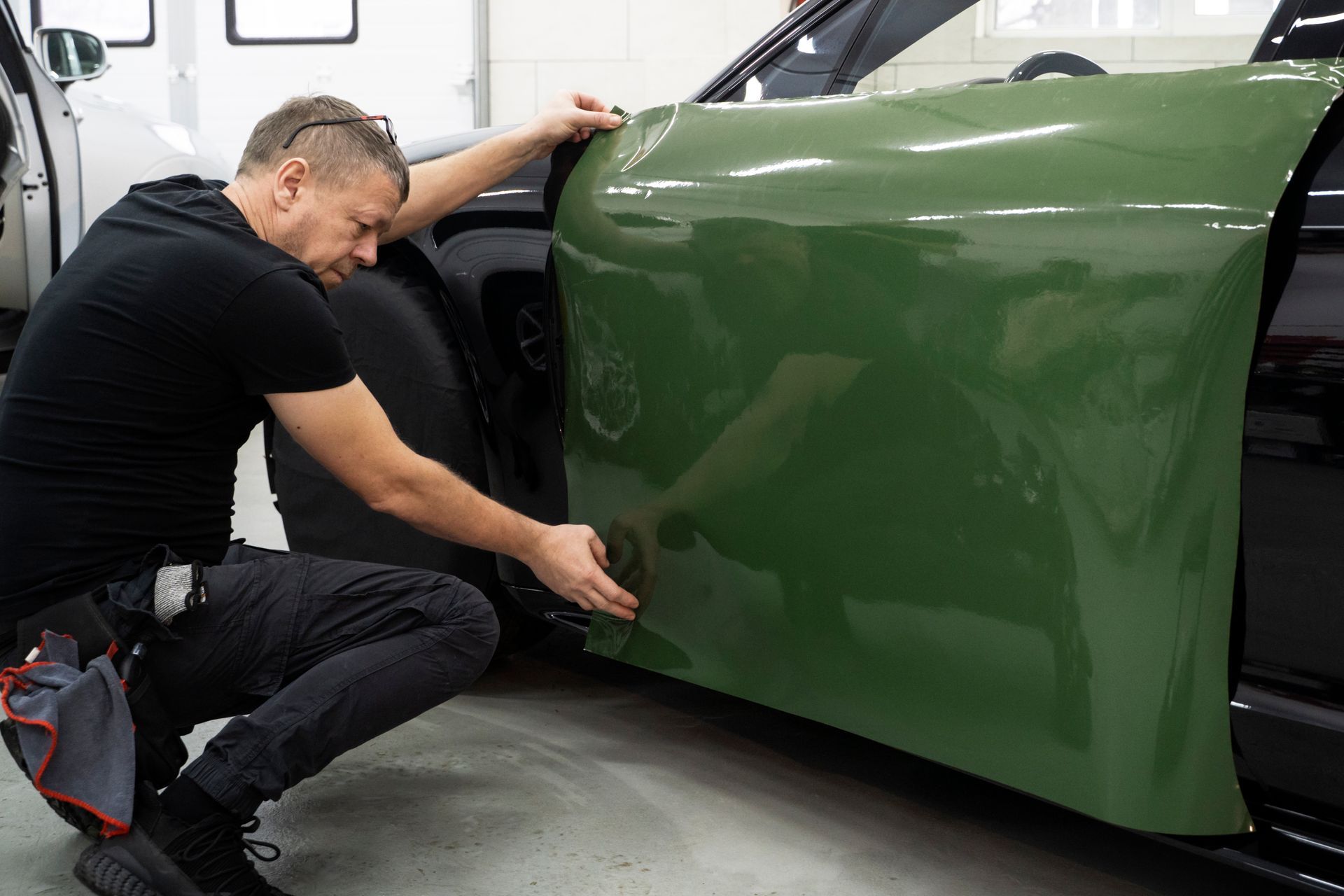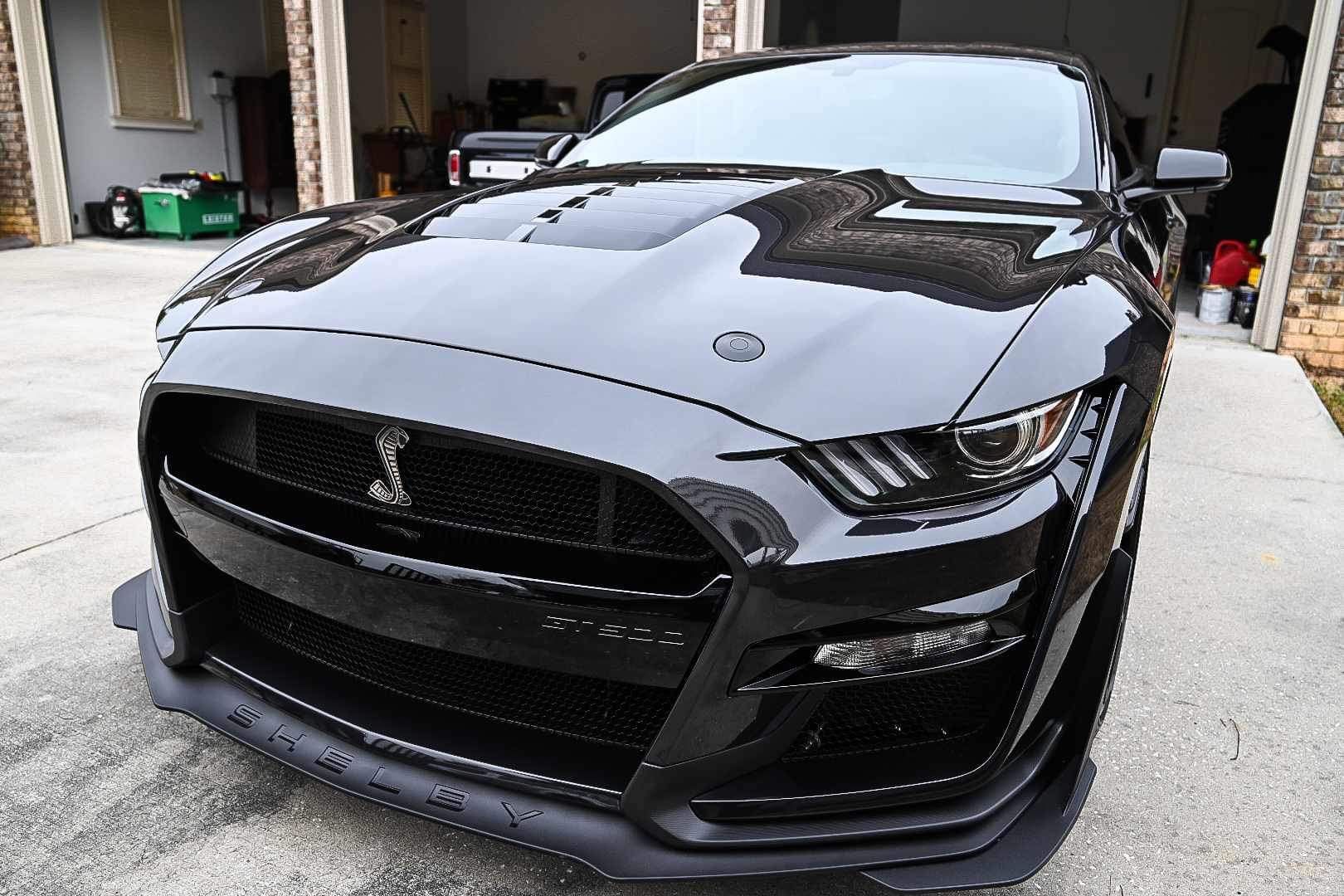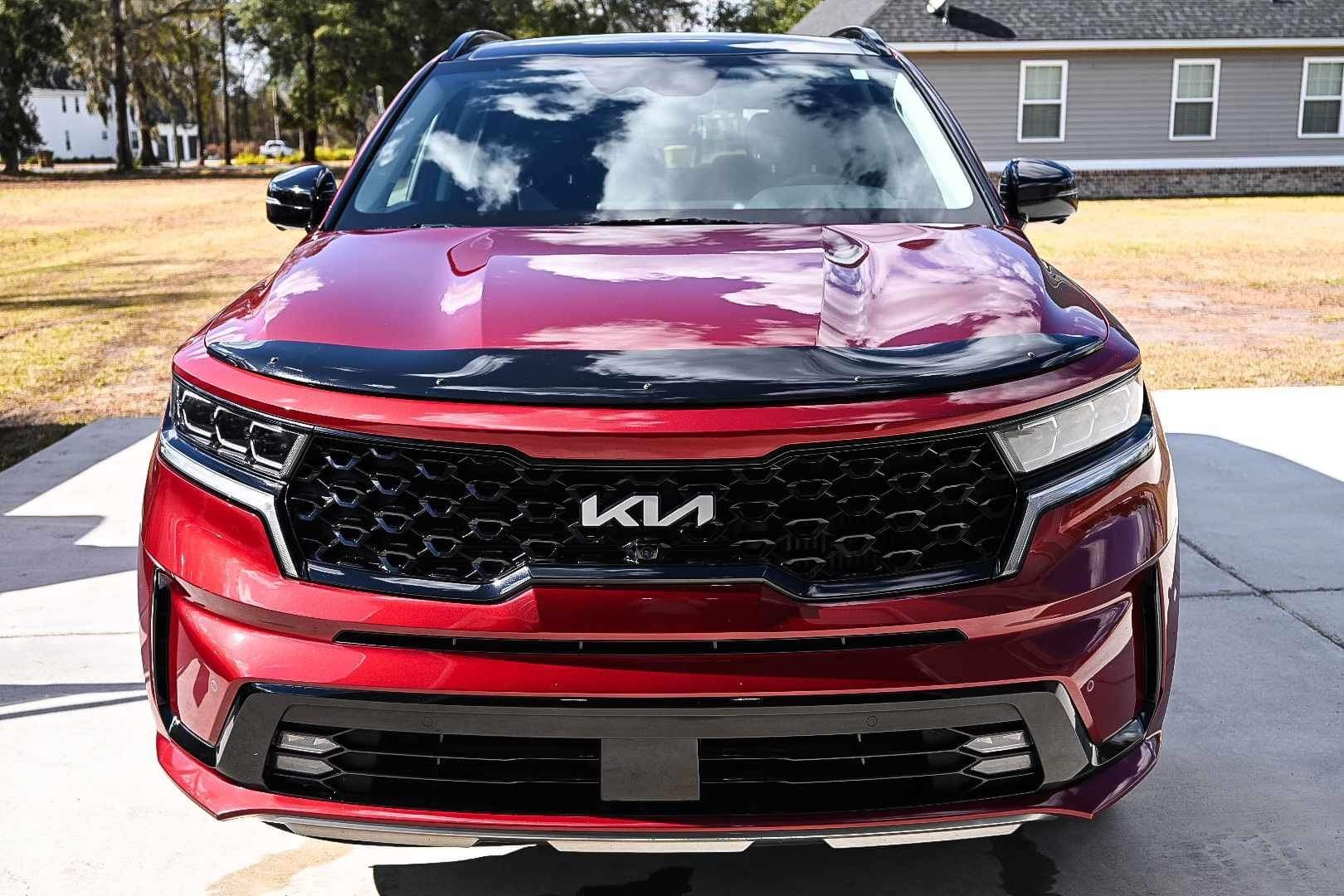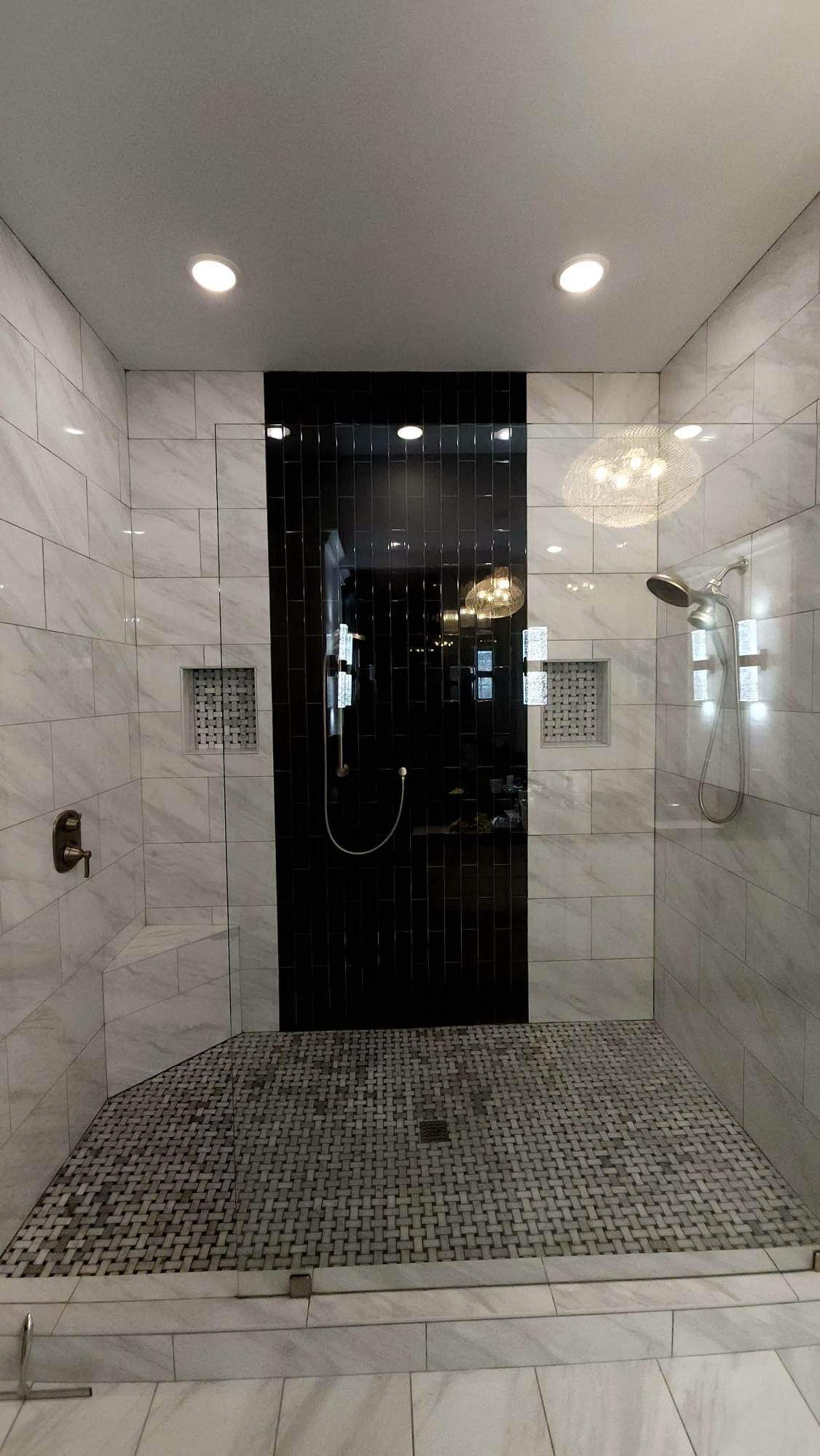Ceramic Coating Good or Bad: Debunking 5 Myths
GET A FREE ESTIMATECALL (912) 656-6947
Ceramic coating has many merits, like forming a robust bond with your vehicle's paint for a steadfast shield. This protective layer guards against harmful UV rays, acid rain, and other damaging factors from the environment. However, some perceive it as a miracle solution that can prevent all car exterior issues, which is a twist to this story. This is why it's important to break down common myths about ceramic coating. In actuality, understanding ceramic coating helps you leverage it correctly to your vehicle's advantage.
Ceramic coatings can be an excellent choice for car paint protection, offering benefits such as UV protection and enhanced gloss. However, it's essential to understand that they are not scratch-proof and require regular maintenance to uphold their protective qualities.
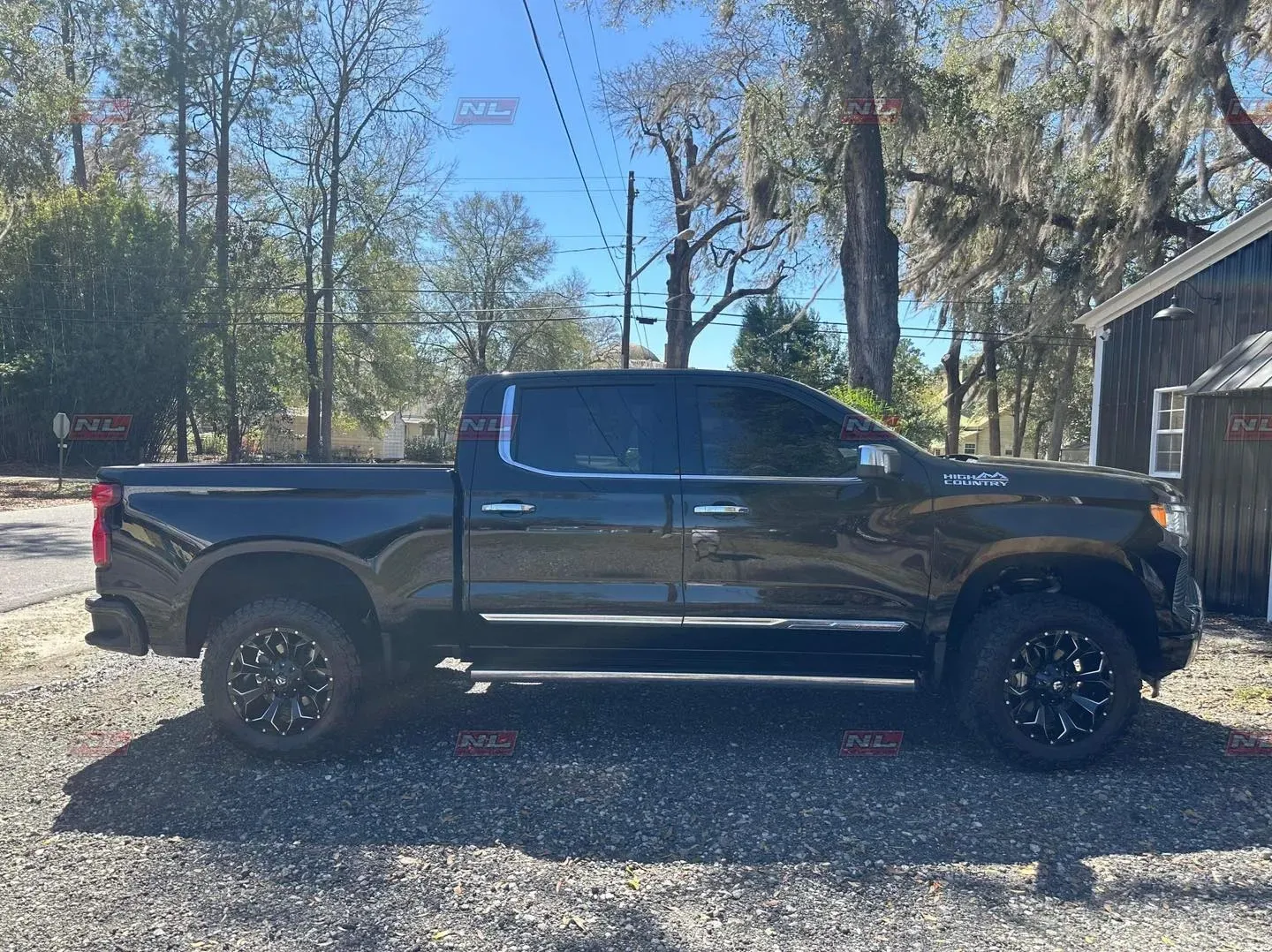
What is Ceramic Coating?
Many people have inquired about what is a ceramic coating for cars. A ceramic coating is a liquid polymer applied to the car's exterior, creating a protective layer. What makes it exceptional is its chemical bond with the factory paint, which results in a semi-permanent or even permanent shield against various environmental damage.
This isn't your typical wax or sealant; it offers long-term protection against everyday hazards. From UV rays that fade the paint to swirl marks from debris and rough surfaces, the ceramic coating acts as an extra layer of defense.
One notable feature of ceramic coating is its resistance to acid rain and other chemical contaminants. These substances can inflict serious damage on your vehicle's paint over time if left untreated. By repelling these harmful elements, the ceramic coating maintains the shiny and new appearance of your car.
Gloss and Hydrophobic Properties
Moreover, ceramic coating contributes to a noticeable depth and gloss on your vehicle's paintwork, enhancing its aesthetic appeal. This glossy finish can make your car appear as though it just rolled off the showroom floor, elevating its overall appearance and value.
Additionally, the hydrophobic properties ensure that water beads up and rolls off easily, helping to repel dirt and grime. This characteristic simplifies car washing and reduces its frequency, keeping your car looking clean for longer periods of time.
So, opting for ceramic coating for your vehicle means not only investing in protection but also enhancing its visual appeal and easing future cleaning and maintenance tasks.
Embracing a ceramic coating allows you to safeguard your vehicle like never before. Now, let's transition into uncovering the truths behind common myths about this revolutionary protective solution.
Debunking Common Myths of Ceramic Coating
There are a lot of rumors and misconceptions about ceramic coatings and how they work. Let's dispel some of these myths so you can make informed decisions about caring for your car.
Myth 1: Ceramic Coating Eliminates the Needs of Washing Car
Ceramic coating does not eliminate the need to wash your car. While ceramic coating can make cleaning your vehicle easier by repelling dirt and water, regular car washes remain necessary to remove dust, grime, and other contaminants that accumulate over time on its surface.
Myth 2: Ceramic coating can be applied once
Though ceramic coating offers long-term protection compared to waxes or sealants, its protective abilities eventually degrade due to exposure to elements, UV rays and regular wear and tear - usually within two or three years after its original application. As such, periodic reapplication may be required in order to maintain optimal protection levels.
Myth 3: Ceramic Coating Makes Your Car Maintenance-Free
While ceramic coating may reduce the frequency of car maintenance by repelling dirt and contaminants, proper upkeep, including washing and periodic reapplication, remains key in order to keep it looking its best.
Myth 4: Ceramic coating can repair existing paint damage.
The ceramic coating acts as a protective layer that bonds to your car's paint, but won't address existing imperfections such as scratches, chips or faded areas of color. In order to achieve optimal results when applying ceramic coating, any imperfections must first be addressed prior to its application.
Myth 5: Ceramic Coatings Are Permanent
The misconception that ceramic coatings are permanent can lead to neglect and improper care. Regular maintenance is essential to uphold the efficiency of the coating. Over time, exposure to the elements and environmental contaminants will degrade the coating’s protective properties. Periodic reapplications and proper care are crucial to ensuring the longevity and effectiveness of the ceramic coating.
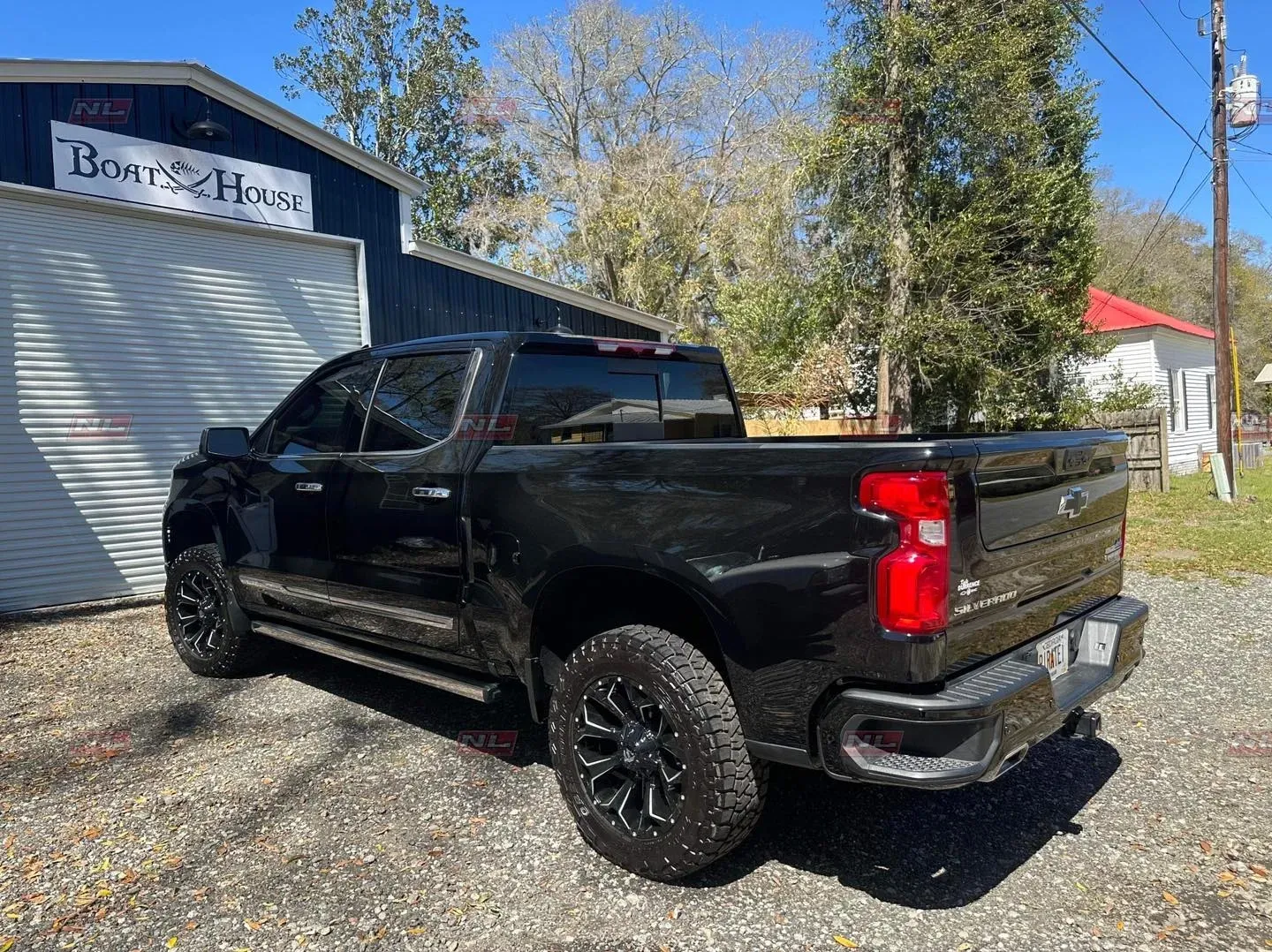
Fact Check: Waxing vs Ceramic Coating
When it comes to protecting your vehicle's paint, traditional waxing and modern ceramic coatings are the most common choices. Let's take a closer look at how they compare.
Waxing: Many of us are familiar with waxing—a process that entails applying a thin protective layer of wax to the vehicle's exterior. This layer offers temporary protection and a glossy finish to the paintwork. However, it does require more frequent reapplication due to its limited durability.
Ceramic Coating: On the other hand, ceramic coating is a liquid polymer applied by hand to the exterior of the vehicle. It chemically bonds with the factory paint, creating a protective layer that can last for several years. Ceramic coatings offer enhanced resistance to environmental contaminants and UV rays, making them a top choice for long-term protection.
One key aspect that differentiates these two options is their longevity. While wax provides only temporary protection, requiring reapplication every few months, ceramic coating can last for several years if properly maintained. This means less time spent on maintenance and greater convenience for the vehicle owner.
Furthermore, consider the overall cost involved in both options. Although ceramic coating initially requires a more significant investment than regular waxing, its longevity and durability make it a cost-effective choice in the long run. The need for frequent reapplications with wax products can add up over time, often costing more than a one-time application of ceramic coating.
It's important to note that while ceramic coatings offer superior protection and longevity, proper application by a professional detailer is crucial to ensuring optimal results. The surface must also be thoroughly prepared before applying the ceramic coating to achieve the best bond and durability.
Understanding the key differences between waxing and ceramic coating can help you make an informed decision when it comes to preserving your vehicle's paintwork. Let's move on to exploring some of the practical benefits of ceramic coating over traditional waxing methods.
The Reality of Damage Prevention with Ceramic Coating
Ceramic coatings indeed offer a formidable shield against various environmental threats, sparing your vehicle from the harmful effects of UV rays, oxidation, and chemical stains. The hydrophobic properties of ceramic coatings work wonders in reducing the formation of water spots, making cleaning and maintenance a significantly more manageable task. While ceramic coatings provide exceptional protection, it's imperative to recognize that they are not invincible and necessitate proper care and maintenance to ensure their long-term effectiveness.
The hydrophobic nature of ceramic coatings also plays a pivotal role in maintaining the cleanliness of your vehicle. Water beads up and easily slides off the surface, minimizing water spots and making routine cleaning less arduous. This streamlined process doesn't just save time but also preserves the integrity of the coating, ensuring that it continues to perform optimally.
It's important to remember that while ceramic coatings augment your vehicle's defense mechanisms, they are not immune to wear and tear. Just like any other protective layer, they require proper care and attention to sustain their efficacy over time.
Direct sunlight continually bombarding the coating can potentially compromise its effectiveness. Over time, exposure to harsh climatic conditions or neglecting routine maintenance can cause wear and erosion in the coating. Therefore, regular upkeep is pivotal to maximize its longevity.
By understanding these aspects, you can make informed decisions about how to care for your vehicle and maximize the benefits provided by ceramic coatings. It's clear that while ceramic coatings offer robust protection, proactive care is key in maintaining their efficacy over time.
With an understanding of how ceramic coatings function and their limitations, it's now crucial to delve into the specific benefits these products offer for vehicle maintenance and preservation. Injury prevention should unanimously support this decision.
Evaluating the Benefits of Ceramic Coating
Ceramic coatings are like a protective shield for your vehicle's paint, offering a range of advantages that make it a popular choice among car enthusiasts and owners who value maintaining their vehicle's appearance.
One of the most prized benefits of ceramic coatings is the long-lasting protection they provide against environmental contaminants. This protection helps prevent damage from bird droppings, tree sap, and other environmental pollutants that can corrode and etch into traditional paint finishes.
What's more, ceramic coatings can give your vehicle's paintwork that eye-catching, just-detailed shine that everyone envies. Not only does it provide protection, but it also adds enhanced gloss and depth to the paint, making your vehicle stand out as it catches the light.
Hydrophobic properties for water and dirt repellency
It's like applying a non-stick coating to your car. The hydrophobic properties allow water and dirt to bead up and roll off easily instead of sticking to the surface, making cleaning your car much easier.
This means less washing and scrubbing—ceramic coatings significantly reduce the need for frequent waxing or polishing. It's like having a self-cleaning car!
In addition to decreasing maintenance efforts for cleaning and upkeep, ceramic coating can potentially increase your vehicle's resale value by preserving its exterior condition over time. With this invisible layer providing continuous protection against wear and tear, your car maintains its pristine appearance, making it more attractive to future buyers.
The array of benefits offered by ceramic coatings demonstrates why many car owners are opting for this advanced protective solution. From lasting protection against environmental contaminants to reduced maintenance efforts and enhanced visual appeal, ceramic coatings provide a comprehensive approach to safeguarding and elevating your vehicle's exterior.
It’s clear that ceramic coatings offer a compelling range of benefits that appeal to car owners looking to enhance the longevity and appeal of their vehicles.
Potential Drawbacks of Ceramic Coating and Alternatives
While ceramic coatings are esteemed for their exceptional protection, there are certain considerations to take into account. One of the primary drawbacks is the necessity for professional application. Applying a ceramic coating requires precision and skill to achieve optimal results, unlike regular waxes or sealants. Even minor mistakes during the application process can lead to long-term issues, such as streaking or uneven coverage. Additionally, improper application might compromise the integrity of the coating, affecting its performance and durability.
Moreover, it's important to note that a ceramic coating is not a one-time solution. Despite its longevity, periodic reapplication is necessary to maintain its effectiveness. Over time, exposure to harsh environmental elements can degrade the coating, necessitating the need for reapplication every few years. This can add to the overall cost and maintenance requirements of owning a ceramic-coated vehicle.
In light of these considerations, it's crucial for car owners to be aware of the commitment involved in maintaining a ceramic coating. Alongside regular reapplications, proper care and maintenance are essential to prolonging the lifespan and effectiveness of the coating.
Considering both the drawbacks of ceramic coatings and the promising features of paint protection film provides car owners with valuable insights when weighing their options for long-term vehicle protection. Both choices present unique considerations, requiring informed decisions based on individual needs and preferences.
In summary, understanding the drawbacks and alternatives to ceramic coatings can empower vehicle owners to make informed choices when it comes to protecting their vehicles. Ready to protect your vehicle? Contact us at (912) 656-6947 for expert advice and professional ceramic coating service.


